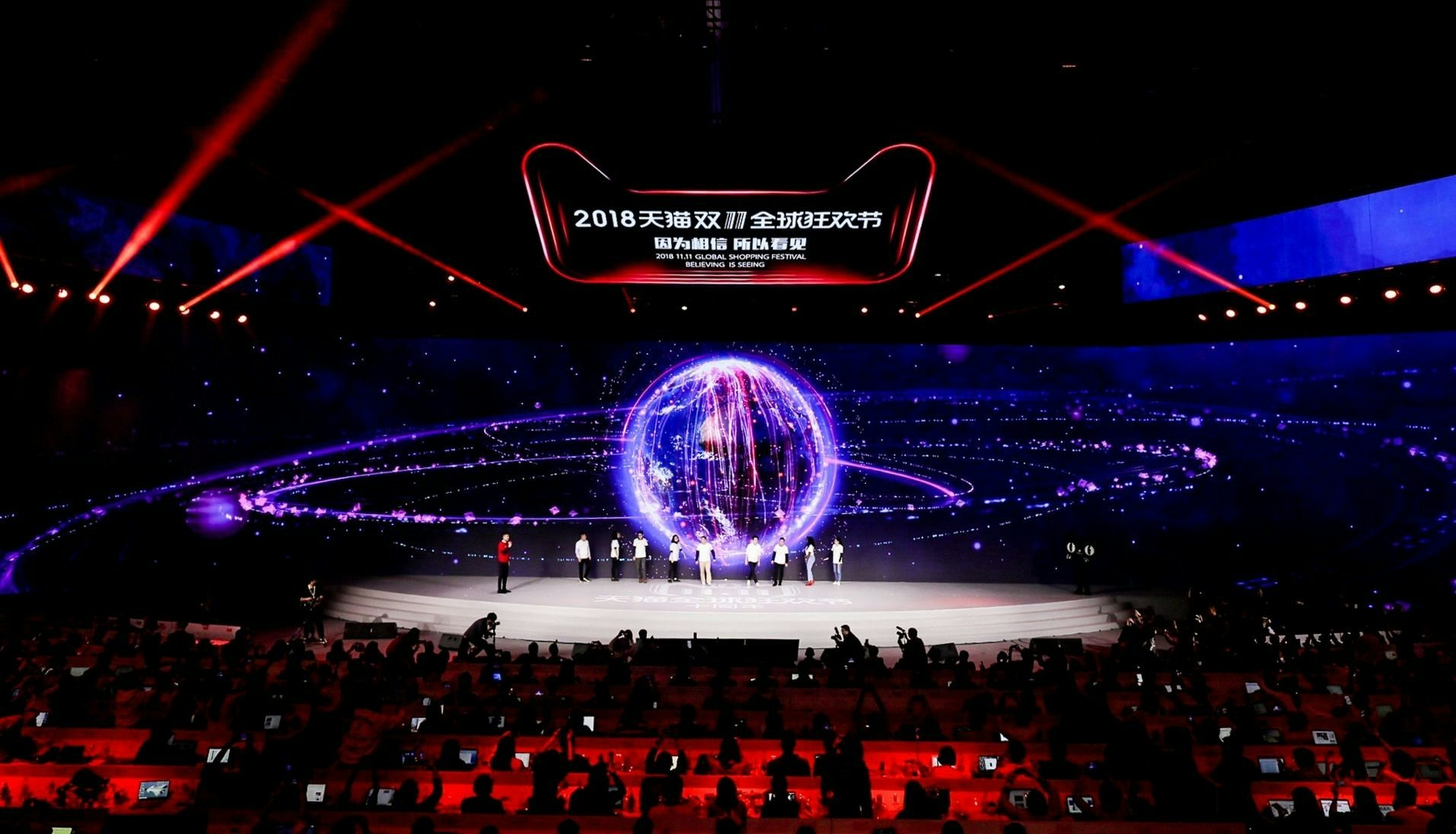Good news, finally, for investors in China stocks and believers in the luxury industry? Alibaba Holding Group beat Wall Street analysts’ expectation for net profit in its end-of-year quarter, reporting 4.5 billion (RMB 30.964 billion). Its success stories included its cloud computing business that saw revenue increase 84 percent year-on-year and a spurt of 33 million in mobile monthly active users from September through December.
The news came hard on the heels of LVMH earnings yesterday that saw the luxury company's stock climb in response, and lifted the shares of Kering, Hermès, etc.
Overall, results were mixed for Alibaba, which put out its year-end quarter numbers (fiscal third quarter 2019) on January 30 before the market opened. China’s largest e-tailer reported revenue growth of 41 percent year-on-year to 17.057 billion (RMB 117.278 billion), slightly lower than the 17.7 billion consensus estimate predicted by 29 analysts surveyed by Yahoo! Finance. The revenue growth was the company’s slowest in three years. But it was boosted by record sales during November’s Singles’ Day sales that saw over 40 percent of Chinese consumers make purchases from international brands. During the annual sales event, the company also attracted overseas consumers.
Some of its core business success in the quarter was attributed to adding more brands to the Tmall Luxury Pavilion as well as those that opened flagship stores on the platform, including Valentino, Ermenegildo Zegna, Stuart Weitzman, and Sergio Rossi.
Alibaba once again shrugged off the effects of the U.S.-China trade war, stating that the company’s exposure to trade tariffs is small, thus it is not significantly affected. The earnings call echoed CEO Daniel Zhang’s comments at the World Economic Forum last week in which he said, "China is such a huge market, with one billion consumers and if we can make China the whole market in the right conditions, it's a self-sufficient market."
Alibaba has been active in expanding its market in China beyond first-tier cities like Beijing, Shanghai, and Shenzhen. The company added 35 million annual active consumers in the 12-month period ending September 30, 2018, with mobile monthly active users increasing by 33 million between September and December. Alibaba noted that over 70 percent of the new annual active consumers in the quarter were from smaller cities, “demonstrating the success of our initiatives to cater to a broader base of users.”
Alibaba plans to focus on expanding its business beyond China, particularly across Southeast Asia. The company sees the region as the best bet for continued growth.

